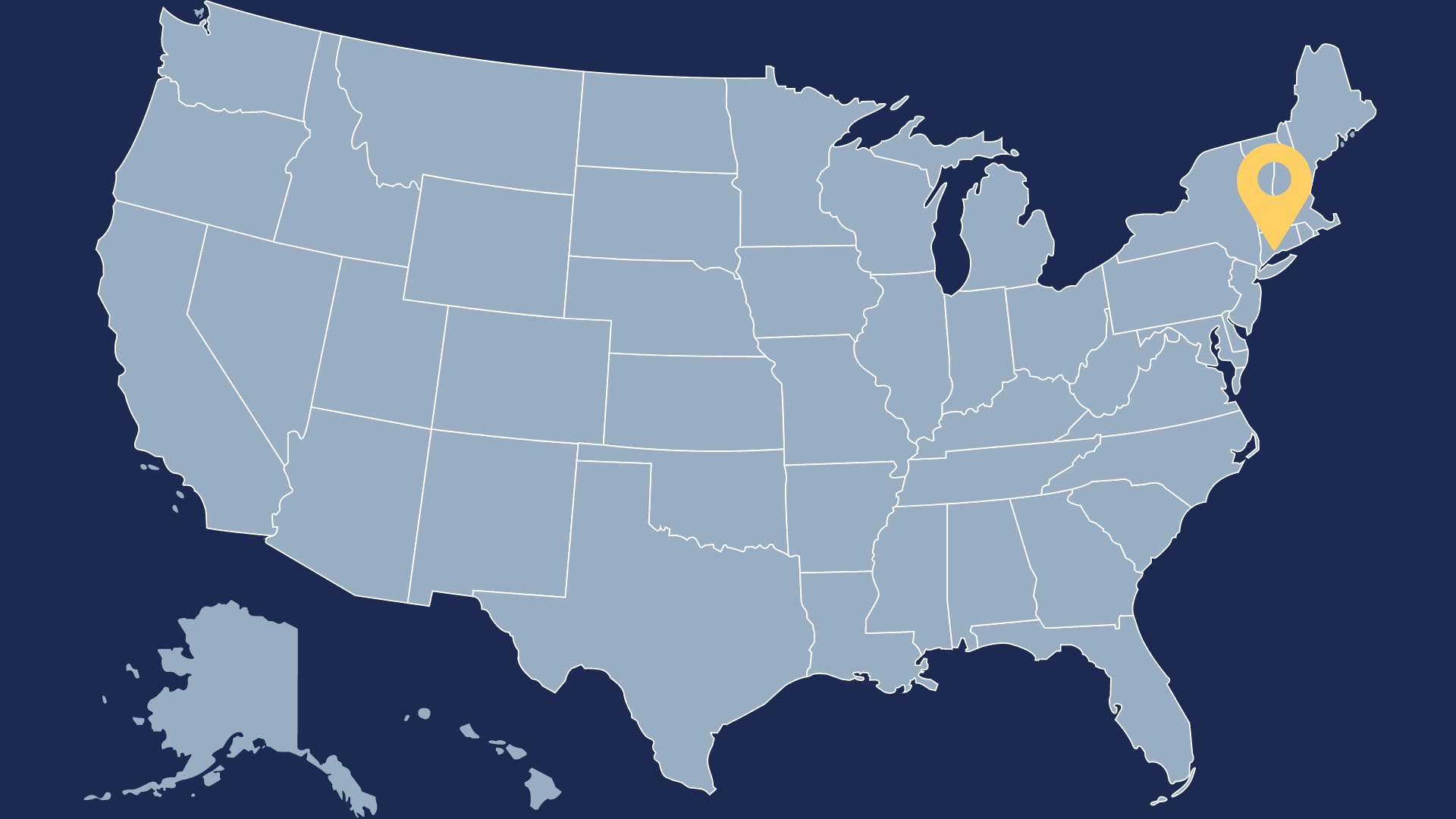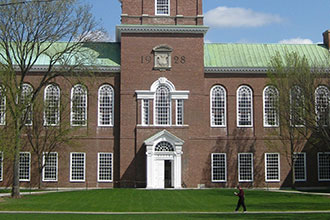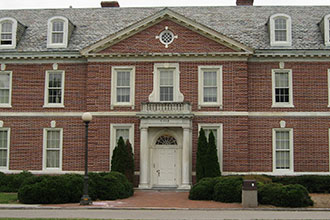REQUIREMENTS AND CAMPUS GUIDE
Yale University
Located in the charming town of New Haven, Yale University was founded in 1701 with the purpose of cultivating ethics, enlightenment, and purpose within the “next generation of world leaders.” Since then, it has come to be recognized as one of the greatest universities in the world, and its campus houses world-class museums, libraries and research facilities. Campus life brims with the spirit of intellectual inquiry and community that bonds through historic traditions, tight-knit residential colleges and the arts, Despite the near-universally recognized cachet the Yale name holds, Yalies are known to have a kindness, humility and curiosity about them that radiates from the warmth of the campus to the service through which they uplift the surrounding New Haven community. Though Yale has a history that predates the establishment of America, it embraces a culture of continuous innovation, tolerance, and service with a greater orientation towards improving the future of humanity.
REQUIREMENTS AND CAMPUS GUIDE
Yale University
Located in the charming town of New Haven, Yale University was founded in 1701 with the purpose of cultivating ethics, enlightenment, and purpose within the “next generation of world leaders.” Since then, it has come to be recognized as one of the greatest universities in the world, and its campus houses world-class museums, libraries and research facilities. Campus life brims with the spirit of intellectual inquiry and community that bonds through historic traditions, tight-knit residential colleges and the arts, Despite the near-universally recognized cachet the Yale name holds, Yalies are known to have a kindness, humility and curiosity about them that radiates from the warmth of the campus to the service through which they uplift the surrounding New Haven community. Though Yale has a history that predates the establishment of America, it embraces a culture of continuous innovation, tolerance, and service with a greater orientation towards improving the future of humanity.

REQUIREMENTS AND CAMPUS GUIDE
Yale University
Located in the charming town of New Haven, Yale University was founded in 1701 with the purpose of cultivating ethics, enlightenment, and purpose within the “next generation of world leaders.” Since then, it has come to be recognized as one of the greatest universities in the world, and its campus houses world-class museums, libraries and research facilities. Campus life brims with the spirit of intellectual inquiry and community that bonds through historic traditions, tight-knit residential colleges and the arts, Despite the near-universally recognized cachet the Yale name holds, Yalies are known to have a kindness, humility and curiosity about them that radiates from the warmth of the campus to the service through which they uplift the surrounding New Haven community. Though Yale has a history that predates the establishment of America, it embraces a culture of continuous innovation, tolerance, and service with a greater orientation towards improving the future of humanity.
School Location:
NEW HAVEN, CT
School Type:
PRIVATE RESEARCH UNIVERSITY
Admissions Rates:
ADMITTED: 4.5%
GENERAL INFO
SAT/ACT Scores:
Test Required for 2024-2025
Admission Cycle
Class of 2027 Test Scores
SAT MATH: 1550-1560
Middle 50% ACT: 33-35
Dates/Deadlines:
Single Choice Early Action:
November 1
Regular Decision:
January 2
School Information:
Undergraduate population:
4,657
Faculty Ratio:
3:1
Interviews Considered:
Yes
YALE TIPS & GUIDE
How difficult is it to get into Yale?
Yale is by far one of the most selective universities in the nation, accepting a mere 4.5% of the students who applied during the most recently reported admissions cycle. The SAT composite score was 1540 while the ACT composite was 34, both for the 50th percentile of accepted students. The 2,332 admitted students were selected from the one of the largest applicant pools in Yale’s history, which has increased by 66% since 2020 and represents 83 different intended academic programs. In addition to top academic credentials, Yale’s admissions officers seek Yalies who offer a “diverse range of strengths, ambitions, and lived experiences” to develop such a dynamic incoming class.
What is the campus like at Yale?
Yale is located in the eclectic city of New Haven, which has been described as “large enough to be interesting yet small enough to be friendly.” Located between Boston and New York, New Haven offers the community feeling of a smaller city with convenient access to all that its nearby metropolises have to offer. The town, affectionately referred to as ‘Elm City,’ and the school has been inextricably tied for over three hundred years, and Yale students are often active members of the New Haven community. Many undergraduates participate in community service, especially in New Haven’s public schools.
New Haven is certainly known as a ‘foodie’ town — the small town offers a dizzying array of cuisines, and is even where the first-ever hamburger was sold in 1895. A popular saying in the area is that “you’re not legally allowed to love pizza until you’ve eaten it in New Haven, Connecticut.” Food trucks are also a big part of food culture here — at Ingalls Rink, commonly referred to as “the Whale,” undergraduates and graduates flock to the food trucks stationed outside the rink for lunch, where they have their pick of Bengali to Ethiopian to Mediterranean cuisines.
Yale has a substantial community of 6,818 undergraduates (fall 2023), and 100% of first-year students and 80% of all undergraduates live in university housing. Extracurricular life is engaging and multifaceted, with almost 100 sports teams, 50+ performance troupes, and 60+ cultural groups, and a vibrant Greek life scene. The arts are heavily integrated into Yale’s culture, especially in its a cappella scene. The co-ed Whiffenpoofs are a world-famous group — they even embark on a global tour! Yale’s drama scene is also famous, with alumni such as Meryl Streep, Paul Giamatti, and Lupita Nyong’o.
Yale’s Residential College housing system randomly assigns incoming first-year students to one of the fourteen residential colleges. Each college is intended to be a microcosm of the Yale community, and provide students with a smaller community as a home base. While the colleges have different architectural styles, all of them have a dining hall, library, and buttery, a late night snack bar that sells inexpensive study fuel and serves as a hang out for students in search of a study break. Some residential colleges have other facilities, such as gyms, game rooms, music practice spaces, pottery studios, or basketball courts.
What is Yale known for?
Though Yale is especially renowned for its stellar performings arts and literature programs, it’s a unique institution in that it excels across arts and humanities just as impressively as it does science and research. Additionally, it has earned additional international acclaim through its world-class graduate schools, most notable Yale Law, Yale Medicine, and the School of Drama, and the Jackson School of Global Affairs. Notable alumni include several U.S. presidents, Supreme Court justices, senators, CEOs, Academy Award winners, and olympians, representing a diverse array of professions and disciplines. Treasured Yale traditions include the First-Year Dance, First-Year Day of Service, Harvard-Yale football game that has persisted since 1875, Holiday Dinner, and Spring Fling.
How diverse is Yale?
The Class of 2028 represents 50 states and 62 countries. In 2023-2024, Yale’s undergraduate student body is 50.8% female, 47.5% male, and 1.7% another gender. In terms of representation and ethnic diversity, the undergraduate population is 10.6% international, 15.7% hispanic/latino, 8.8% black/African-American, 32.4% white, 0.5% Native/Indigenous American, 22.8% Asian, 7.2% two or more races, and 1.8% unknown. Furthermore, 60% of first-year students come from public school while 40% come from independent day, boarding, and religious schools.
How do I apply to Yale?
Yale has two major application deadlines for undergraduate admissions: Single-Choice Early Action on November 1 and Regular Decision on January 2. Single-Choice differs from regular admission in that it is binding and restrictive, meaning that students may only apply to other schools’ early admission programs if they are non-binding. To apply to Yale, prospective students must submit the following:
- The Coalition Application, the Common Application or the Questbridge Application
- $80 application fee or fee waiver
- Recommendations from two teachers and one counselor
- School Report with transcript
- Standardized test results (ACT, AP, IB or SAT)
- Mid-Year Report (due when first semester/term senior grades are available at your school)
Does Yale have a good athletic department?
The Yale Bulldogs compete in the NCAA Division I with 30+ varsity teams (including both men’s and women’s teams). Outside of the varsity level, the school offers 40+ club sports, fitness classes, recreational programs, intramurals, and 2,200 acres of parks throughout the Greater New Haven area. Although some clubs remain solely recreational, most are highly competitive. Yale’s most major rival, both athletically and academically, is Harvard,
What are Yale’s core curriculum and programs?
Yale does not have a core curriculum, but instead uses distributional requirements to encourage students to take a breadth of courses. Yale requires that students take at least two course credits in each of their three areas: humanities and arts, sciences, and social sciences. Students must also complete two course credits in quantitative reasoning and two course credits in writing. Finally, students must fulfill a foreign language requirement, which can range from one to three courses depending on the level of proficiency at time of matriculation. In some cases, the language requirement may also be fulfilled by study abroad courses.
By the end of their sophomore year, students are required to choose their major or double major. Yale does not offer minors, but does offer certificate programs for students interested in deepening their knowledge of a language, skill, or pursuing an interdisciplinary course of study.
Can I afford Yale?
Yale’s total tuition and fees amount for the 2024-25 school year is $87,150. Fortunately, Yale is committed to its generous financial aid policy. Families receiving a Yale financial aid award do not pay the full cost of attendance. Instead, Yale calculates an Expected Family Contribution based on the Estimated Cost of Attendance and a family’s specific Demonstrated Financial Need, which is determined through the financial aid application process. Yale is committed to covering 100% of every family’s Demonstrated Financial Need with a financial aid award that does not require loans. The average financial aid award for incoming first-year students is $64,924, and 54% of Yale undergraduates receive financial aid.




